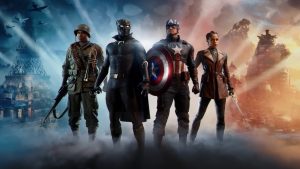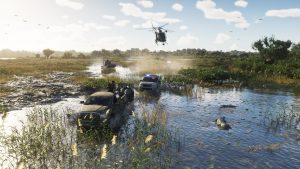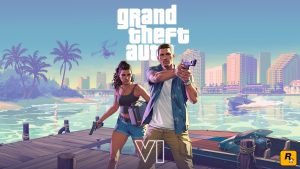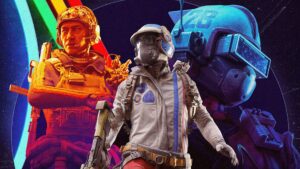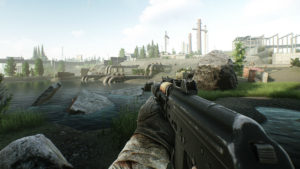
Like A Dragon Gaiden: The Man Who Erased His Name (a ridiculous name that I won’t be putting down in full in this review anymore) is… fine. As a long time Yakuza/Like A Dragon fan, it hits some of the highs that I have come to expect from the games. However, it also comes off as a curiously muted and restrained outing – which, if you know anything about the games, you know is part of their whole appeal, how bonkers over the top they tend to go in big and small ways. And to be fair, Gaiden does this (or tries to) in its own way, but it doesn’t hit as well as some of the series’ more recent, memorable outings.
"If you play these games for their stories and characters, and the insane ways those interact and escalate and tend to subvert player expectations at their best, then Gaiden fails to truly deliver on that front."
A big issue is the story. Look, before we proceed with this review, it’s very important that you understand, discussing Gaiden without at least referencing the stories of Yakuza 6, 7, and the upcoming Infinite Wealth, as well as the rest of the Kiryu games that led up to 6, is very difficult. While every effort will be made to not share details from other games more than necessary, Gaiden assumes familiarity with the stories of Yakuza 6 and 7 as a bare minimum – and so this review will as well.
That actually touches upon what might be the biggest issue with Gaiden. It’s basically backed into a corner in terms of the writing. Spoilers are coming up for Yakuza 6 and 7 – see, Yakuza 6 goes out of its way to build up contrivances to get a very specific kind of ending for itself, and for Kiryu. It wants the stakes to be higher, it wants them to be more personal, it wants there to be a sense of finality for Kiryu and his story, it wants his journey in this story to be conclusively finished, but it wants to do all of this without actually killing Kiryu.
To 6’s credit, it mostly pulls off all of this, at the cost of having a story that would hold up to scrutiny. But the emotional beats land, and that’s the important thing. Then 7 ends up with Kiryu showing up in what was at the time assumed to be a fan service cameo, a kind of passing the torch moment – but to contextualize that appearance, it further adds to Kiryu’s narrative after the events of Yakuza 6.
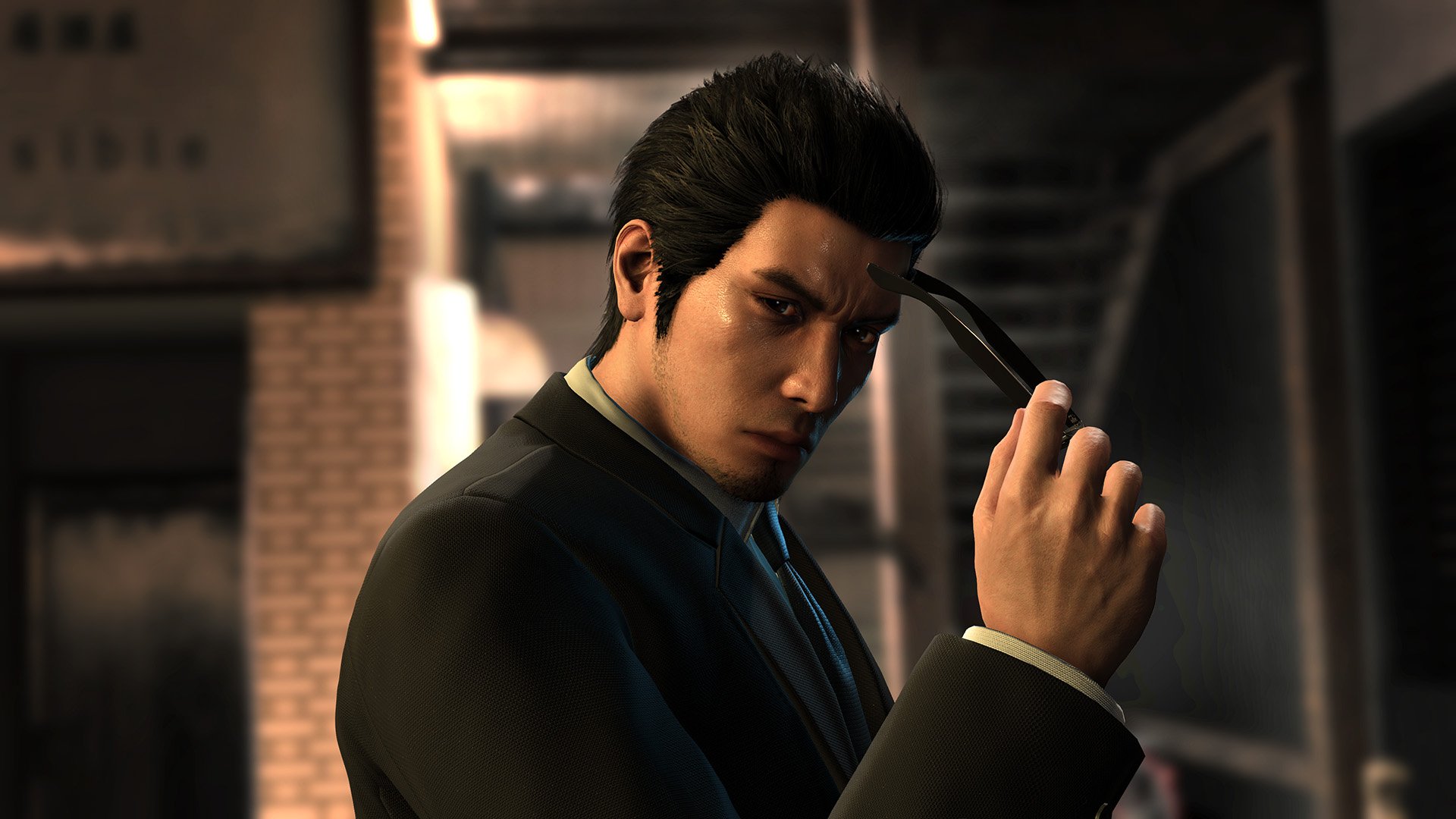
"See, this game is set between 6 and 7, and it’s supposed to fill in the story of what happened with Kiryu in that period. The issue is a) there isn’t a lot of the intervening period left to begin with and b) what happens right before and right after that period is defined very explicitly, and in very specific terms. This means that the story of Gaiden has almost no wiggle room."
If you managed to follow all of that, then you can probably understand the big issue with Like A Dragon Gaiden. See, this game is set between 6 and 7, and it’s supposed to fill in the story of what happened with Kiryu in that period. The issue is a) there isn’t a lot of the intervening period left to begin with and b) what happens right before and right after that period is defined very explicitly, and in very specific terms. This means that the story of Gaiden has almost no wiggle room. It has to hit the beats it needs to hit to not violate the canon of 6 or 7 – regardless of what that means for its own story. Even if it leads to a story that can often feel incoherent (which Gaiden often does) as it tries to juggle various plot beats, or a story that sort of doesn’t feel as interesting because of the constrained and hemmed in nature of the plot, there’s not much choice here. Gaiden is written into a corner, and the only way out is to follow the very specific and signposted path already laid down for it.
If you play these games for their stories and characters, and the insane ways those interact and escalate and tend to subvert player expectations at their best, then Gaiden fails to truly deliver on that front. I’m not saying it has none of that, but what is here is, to me, lacking compared to the best the series has to offer, as well as to the recent outings the franchise has had (such as Yakuza 7, or the excellent remake of Ishin that launched earlier this year). Also given that Gaiden is situated where it is in the series’ overall broader timeline, it means that a lot of fan favorite characters in the series either do not appear in Gaiden, or if they do, it’s only in passing, and certainly without any meaningful interaction with Kiryu.
But let’s assume you are fine with the story being what it is, you just want some new Yakuza goodness to play. Does Gaiden deliver? More or less. It’s a fun game, and a good enough iteration on the Yakuza template. The brawler combat here delivers two fighting styles, a “Yakuza style” which is closer to Kiryu’s traditional fighting style, and an Agent style, which is snazzy and cool and slick and sees Kiryu fighting like a character out of a spy flick, The new fighting style is good, and allows for some great new combat opportunities, though it is a shame that the game only delivers two combat styles (which is still a step down from the peak of the series, when it would have 3-6 fighting styles within a single game). The issue is there’s a general lack of polish in the game. It manifests in small and subtle ways – the controls feel slippery when moving, the hits and attacks seem to lack the punch that the series is typically known for, animations can seem janky.
This lack of polish extends to outside of the combat too, as does the general curiously muted nature of the gameplay. Gaiden, to its credit, is pretty much a full-fledged Yakuza experience – you get multiple city maps (though they’re fairly compact and truncated), and there’s a whole host of side activities including a brand new battle arena. There’s a lot to keep you busy here, enough to take you through to Infinite Wealth’s release a few months down the line – but it feels less polished, more hastily thrown together than any Yakuza/Like A Dragon game has so far.

"Is it still worth playing? Absolutely, if nothing else it’s a good way to get back in the RGG Studio universe and mood ahead of the upcoming launch of Infinite Wealth early next year. What’s here is still good (not great), and fans of Kiryu or the overall story will at least want this missing piece of narrative, warts and all, to have the full picture. "
The game feels like it was developed on a pretty rapid and truncated timeline – the lack of polish obviously adds to that sense, as do things such as it simply launching without the promised English dub (while I cannot personally fathom playing these games in any way except with the original Japanese dub, a huge part of their newfound popularity in the west has been the excellent localizations these games have seen; taking away an English dub at launch only adds to the “thrown together at the last moment” sentiment the game goes nothing to dispel elsewhere either).
Is it still worth playing? Absolutely, if nothing else it’s a good way to get back in the RGG Studio universe and mood ahead of the upcoming launch of Infinite Wealth early next year. What’s here is still good (not great), and fans of Kiryu or the overall story will at least want this missing piece of narrative, warts and all, to have the full picture. It’s just… for the first time in a very, very long time, a new Like A Dragon release feels a little underwhelming. It’s a funny feeling, that’s all.
This game was reviewed on the PlayStation 5.
Two distinct brawler combat styles, including a slick new one; Multiple maps; Loads of side activities.
A distinct lack of polish; A constrained story; Lack of English dub at launch.











